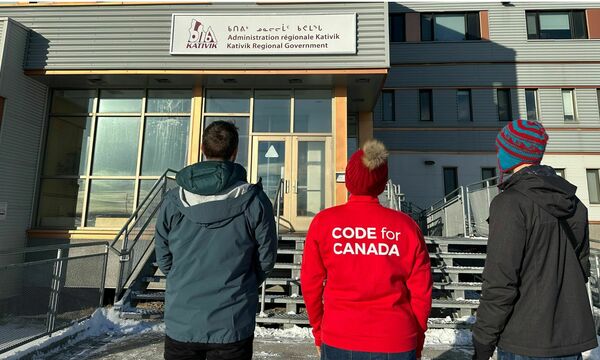Open Call: Online training for Canada’s public health responders

As part of its mandate, the Public Health Agency of Canada (PHAC) trains public health professionals across Canada. PHAC’s Training and Development Unit trains epidemiologists and other public health practitioners, and helps them apply the techniques and technologies they’ve learned in the classroom to real-life public health crises.
In short, they equip them with the skills they need to respond to events exactly like COVID-19.
“We’re at the forefront of training field epidemiologists and public health practitioners to solve some of these big public health problems … and as we’ve seen, that’s certainly being put into practice now,” said Louis Wong, a senior epidemiologist PHAC, and one of the trainers with the Training and Development Unit.
As you might expect, staff at the Training and Development Unit have been busy since COVID-19 arrived in Canada earlier this year. In addition to being mobilized as part of the public health response to the pandemic — leaving their desks and heading into the field — they were tasked with bringing their in-person, interactive training online.
“We had training scheduled in April that we had to cancel because of the risks associated with bringing everyone together and putting them in one room,” said Joanne Stares, another PHAC epidemiologist and trainer.
“It’s not as simple as just taking Powerpoint presentations that we deliver in person and putting them online.”
Louis and Joanne began working on a new online learning tool for their training, a digital portal with all the information learners would need to succeed in a virtual classroom.
However, their extensive training as epidemiologists hadn’t prepared them for building websites. Three weeks into the project, they had managed to create a simple prototype, but it was still missing key features.
“It’s not as simple as just taking Powerpoint presentations that we deliver in person and putting them online,” Louis said.
So, they reached out to Open Call and asked for support. After some initial scoping, they were connected with Alex Sanscartier, a Code for Canada fellow and one of Open Call’s digital responders.
Alex was a seasoned developer and had experience with Microsoft Sharepoint — a tool that Louis and Joanne’s team had just started using. He was able to help the team quickly adapt Sharepoint to their immediate needs. The resulting tool isn’t perfect, but it will vastly improve the experience for the Training and Development Unit’s first virtual students, who will arrive in the fall.
“Through conversations with Alex, we were able to apply a user experience lens to setting up Sharepoint,” Louis said. “It’s now easy to navigate and people won’t have to scrounge through a big repository to find information.”
Louis and Joanne estimate that Alex was able to do in one week what might have taken them three or four. The support freed up their time to design a new curriculum and focus on what they’re best at: training epidemiologists.
“We’re not Sharepoint site designers,” said Joanne. “With Alex’s support, we were able to focus entirely on training. We could focus on the skills we have to bring.”
“Doing this work in the context of this new world, that’s very much impacted by this virus, makes me feel like I’m able to do something quite meaningful in this moment.”
And by working through the user experience of their virtual trainings, the Training and Development Unit now has a much better understanding of how the training can be improved. In fact, they’ve re-engaged Open Call to help them scope the next iteration of their learning tools.
Part of that work involves looking at open source alternatives to Sharepoint that could be adapted to more closely fit the needs of trainers and students.
“Sharepoint was never meant to be an online learning tool. We were trying to make it one because it was a tool we had quick access to,” said Louis. “But now there’s an appetite on the team to take the lessons and features that we’re applying to our September and November trainings and adapt them into something more long term.”
Speaking of long term, it’s clear now that COVID-19 isn’t going away anytime soon, and Canada’s public health response will continue to adapt over time. Collaborating with Open Call has helped the team at the Training and Development Unit feel more confident about the tools and experiences that they provide to the epidemiologists who will manage and monitor that response — and future ones.
“Doing this work in the context of this new world, that’s very much impacted by this virus, makes me feel like I’m able to do something quite meaningful in this moment,” Joanne said. “It’s a really special feeling.”
Open Call is a collaboration between Code for Canada, the Canadian Digital Service and the Canada School of Public Service. We help governments move at the speed of need.
Visit the Open Call website to learn more.










